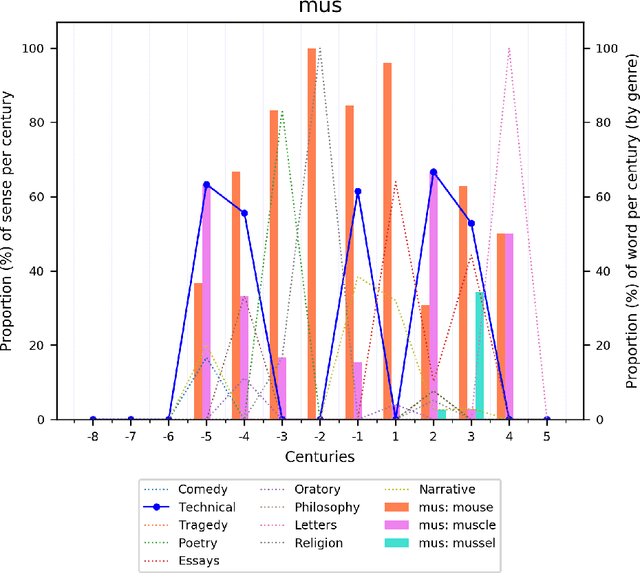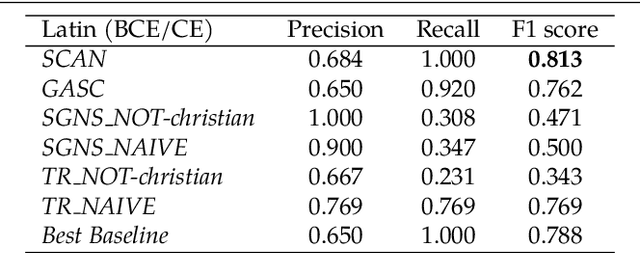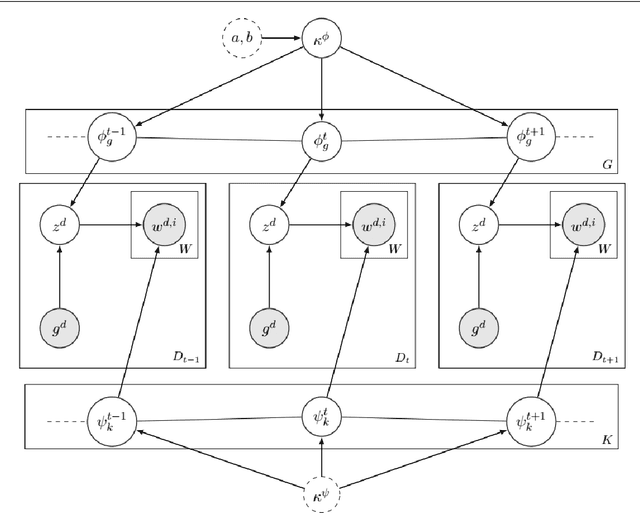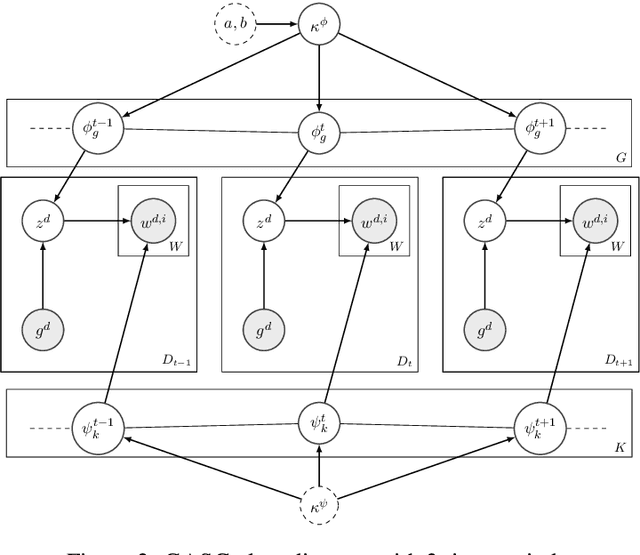Alessandro Vatri
Lexical semantic change for Ancient Greek and Latin
Jan 22, 2021



Abstract:Change and its precondition, variation, are inherent in languages. Over time, new words enter the lexicon, others become obsolete, and existing words acquire new senses. Associating a word's correct meaning in its historical context is a central challenge in diachronic research. Historical corpora of classical languages, such as Ancient Greek and Latin, typically come with rich metadata, and existing models are limited by their inability to exploit contextual information beyond the document timestamp. While embedding-based methods feature among the current state of the art systems, they are lacking in the interpretative power. In contrast, Bayesian models provide explicit and interpretable representations of semantic change phenomena. In this chapter we build on GASC, a recent computational approach to semantic change based on a dynamic Bayesian mixture model. In this model, the evolution of word senses over time is based not only on distributional information of lexical nature, but also on text genres. We provide a systematic comparison of dynamic Bayesian mixture models for semantic change with state-of-the-art embedding-based models. On top of providing a full description of meaning change over time, we show that Bayesian mixture models are highly competitive approaches to detect binary semantic change in both Ancient Greek and Latin.
GASC: Genre-Aware Semantic Change for Ancient Greek
Mar 13, 2019



Abstract:Word meaning changes over time, depending on linguistic and extra-linguistic factors. Associating a word's correct meaning in its historical context is a critical challenge in diachronic research, and is relevant to a range of NLP tasks, including information retrieval and semantic search in historical texts. Bayesian models for semantic change have emerged as a powerful tool to address this challenge, providing explicit and interpretable representations of semantic change phenomena. However, while corpora typically come with rich metadata, existing models are limited by their inability to exploit contextual information (such as text genre) beyond the document time-stamp. This is particularly critical in the case of ancient languages, where lack of data and long diachronic span make it harder to draw a clear distinction between polysemy and semantic change, and current systems perform poorly on these languages. We develop GASC, a dynamic semantic change model that leverages categorical metadata about the texts' genre information to boost inference and uncover the evolution of meanings in Ancient Greek corpora. In a new evaluation framework, we show that our model achieves improved predictive performance compared to the state of the art.
 Add to Chrome
Add to Chrome Add to Firefox
Add to Firefox Add to Edge
Add to Edge